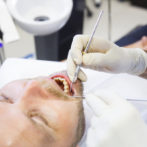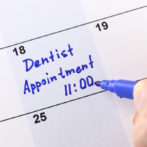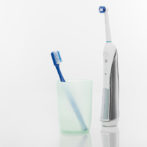Our Best Tips For Instilling Great Dental Habits In Kids With Sensory Issues
For many people, oral health care is something they take for granted by regularly flossing, brushing and seeing their dentist for regular check-ups. However, for children with sensory issues, oral care (including visits to the dentist) can be quite challenging. People with sensory issues often hate the taste of toothpaste, dislike the feeling of a toothbrush against their teeth, have a heightened sense of having their face and mouth touched, and have extra sensitivity to bright lights, smells and sounds associated with dental check-ups. However, by teaming with the right dentist, oral care can be smooth sailing for both the child and their parents. With the right tools, brushing teeth can be a breeze While some people love the sensation of brushing their teeth and having that sparkling clean feeling, people with sensory issues can find it very unpleasant. Thankfully, your dentist can recommend specialised products that don’t overload the senses such as NeutraFluor’s fortified, flavourless toothpaste, and softer manual and electric toothbrushes that reduce the sensation of the toothbrush moving across your teeth. Oral hygiene – it can be fun and games To make bed-time brushing more enticing, try purchasing a 2-minute timer and challenge your child to brush their teeth (or let you brush their teeth) for the whole two minutes. The timer can also be used as a distraction for the child – whether they fixate on the countdown or hold it in their hands to fidget with during the brushing process. Using a product like Plaque Disclose will make plaque on teeth visible so that children can actually see the problem areas and understand the importance of brushing. By aiming to reduce the amount of plaque that shows up the next time the product is used, your child may be motivated by seeing visible results of their hard work. Choose the right dentist to help manage sensory concerns Dentists deal with nervous patients on a daily basis, however, working with someone who has a negative reaction to the typical sensations experienced during a dental visit is a whole other challenge. Thankfully, an experienced, gentle dentist can use special tricks and tools to make the appointment a lot more pleasant in these cases. Commonly used strategies include: Have the patient bring in something to hold/ fidget with in their hand to use as a distraction during the appointment Offer noise cancelling headphones so they aren’t agitated by the sounds Communicate each step during the appointment and give the patient advance notice before touching their face or mouth Have the patient bring in very dark sunglasses to help reduce sensitivity to the lights above If the patient is not familiar with electric toothbrushes, suggest that they use...
Read More




